MercoPress. South Atlantic News Agency
Latin America
-
Thursday, April 22nd 2010 - 00:56 UTC
Gays and lesbians accuse Bolivia’s Morales of “state homophobia”

Gay and lesbian organizations world wide are up in arms demanding Bolivian president Evo Morales rectify his statements on homosexuality which were described as outrageous and “state homophobia”.
-
Wednesday, April 21st 2010 - 17:46 UTC
Colombian presidential candidate accuses Chavez of interference

Colombia’s leading presidential candidate Juan Manuel Santos claimed that Venezuela’s Hugo Chavez is intent in interfering in his country’s electoral process that next May 30 will decide on the successor of President Alvaro Uribe.
-
Wednesday, April 21st 2010 - 16:59 UTC
Satellite mapping show Chilean cities hit by quake have “grown” in height
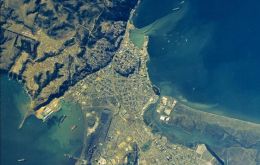
Chilean scientists working next to US Geological Service (USGC) peers are mapping areas of the country devastated by the February 27 earthquake to determine how much has changed geographically.
-
Wednesday, April 21st 2010 - 16:27 UTC
Chilean president to sell holding in television network: 160 million USD

Chilean billionaire-businessman-turned-president Sebastian Piñera is in the process of selling Chilevisión, the third most watched television network in the country.
-
Wednesday, April 21st 2010 - 16:13 UTC
IMF warns about asset bubbles in developing powers in Latam and Asia

The International Monetary Fund (IMF) has urged developing powers in Asia and Latin America to guard against the kinds of asset bubbles that caused wealthier economies to plunge into recession in the last two years.
-
Wednesday, April 21st 2010 - 03:11 UTC
Argentina and Venezuela announce a “new world order of relationships”
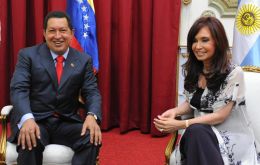
Argentina’s President Cristina Fernández de Kirchner and Venezuela’s leader Hugo Chávez said “the new world requires a new logic to accept a new order of relationships” during a meeting held at the presidential palace of Miraflores in Caracas.
-
Tuesday, April 20th 2010 - 19:39 UTC
Chile surveying glaciers to gauge extent of climate change impact
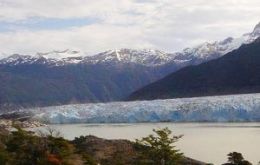
Academics from around the world are taking an interest in Chile’s glaciers. A team of Canadian, French and Chilean experts have been working in Punta Negra, located in the Laguna Negra section of Cajon de Maipo (south of Santiago) since 2003, following both covered glaciers and those known as rock glaciers.
-
Tuesday, April 20th 2010 - 17:31 UTC
Strong reference to the Falklands at Venezuela’s dawn of ‘a new independence’
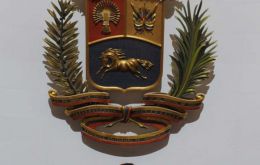
Argentina’s president Cristina Fernandez de Kirchner called on Monday for the end to the Falklands/Malvinas “colonial enclave”, as she forecasted from Venezuela, standing as a privileged guest next to Hugo Chavez, that Latinamerica is in the process of a “second independence”.
-
Tuesday, April 20th 2010 - 16:35 UTC
Chavez marks “true-independence” with impressive military and militias’ parade
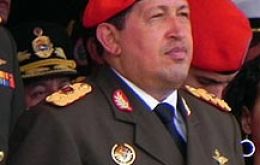
Venezuela kicked off celebrations marking 200 years of struggle for independence with an impressive several hour long military parade. Recently-acquired Chinese K-8 planes and Russian Sukhoi-30 fighter aircraft swooped through the sky during a lavish military parade in Caracas, as soldiers from Algeria, Belarus, Bolivia, Brazil, China, Cuba, Libya, Nicaragua and Russia joined those on the ground.
-
Tuesday, April 20th 2010 - 14:56 UTC
Chile is the world’s leader in star gazing with the most powerful telescopes

Many of the world’s largest investments in the field of astronomy can be found in Chile for the same reasons that Cerro Armazones, in the Antofagasta region, may become home to a new telescope that would produce images 15 times shaper than the Hubble telescope.
